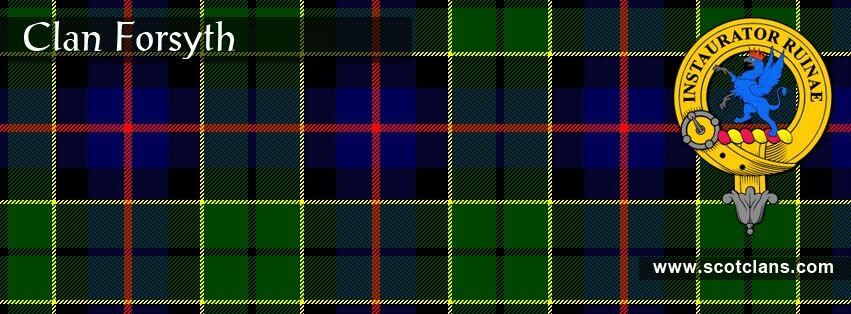-
Gesamte Inhalte
3879 -
Benutzer seit
-
Letzter Besuch
Inhaltstyp
Profile
Forum
Blogs
Artikel
Downloads
Kalender
Galerie
Shop
Beiträge von Octavius Valesius
-
-
-
vor 1 Stunde schrieb Anahita:
Fiel mir gerade ein, da gab es doch vor nahezu ewigen Zeiten einen Rechtsstreit in der deutschen Rollenspielszene um Urheberrechtsfragen und Schöpfungshöhe bei Rollenspielen. Mein Google-Fu hat eben so ausgereicht, das - leider sehr lange - Gerichtsurteil dazu zu finden, das doch recht gut erklärt, was an Rollenspielen geschützt sein kann und was nicht.
Ohje, Juristendeutsch. Und nur Abkürzung, das ist schwere Kost.
-
LANG LEBE ALBA, LANG LEBE DER KÖNIG 💂♀️💂♀️💂♀️
-
Ähhh, WOW ^^
-
 1
1
-
-
vor 36 Minuten schrieb Abd al Rahman:
Ich verwende ChatGPT für Abenteuerideen. Funktioniert prima.
Kannst du einen solchen Dialog mal posten? Wäre interessant.
-
Aber selbst kostenlos angeboten darf man noch lange nicht machen was man will. Nur weil der Content dann kostenlos wäre würde er immer noch in die Rechte des Rechteinhabers eingreifen und kann durchaus zu teuren Abmahnungen führen.
-
vor 1 Minute schrieb Kazzirah:
Es mag nicht hoch sein, aber zählt dennoch als kommerzielle Verwertung und ist damit eben kein Fancontent mehr. Ulisses löst das mit pay what you want. Damit ist es formal unentgeltlich, aber du darfst den Creator was spenden als Anerkennung.
Wenn du dir die zitierten Fanpolicies ansiehst, ist da explizit dein Modell ausgeschlossen.
Dazu braucht es individuelle Verträge.
Oder, so wie ich es bisher mach: Ich "hänge" mich an jemanden mit Lizenz, in diesem Fall MOAM oder den Droll. Zumindest Elsa ist damit einverstanden. Wie sich Pegasus das dann vorstellt ist halt eine große Black Box. ^^
-
vor 4 Minuten schrieb Anahita:
Hallo Octavius,
das hier könnte Dich interessieren, falls Du es noch nicht gesehen hast:
https://steamtinkerer.de/2023/01/22/midgard-6-und-fan-content-policy/
Ja, danke. Das war auch mein Kenntnisstand.
-
vor 3 Minuten schrieb Kazzirah:
Wobei bitte deutlich sein sollte, @Octavius Valesius, dir geht es nicht um Fan-generierten Content als solchem, sondern um kommerzielle Nutzung, da du deine Sachen eben ausdrücklich nicht unentgeltlich zur Verfügung stellen willst. Eigentlich willst du wissen, ob es eine der OGL vergleichbare kommerzielle Öffnung geben wird.
Einige Sachen sind durchaus auch kostenlos ^^. Und ICH denke 1-5 Euro für ein PDF sind nicht zu hoch gegriffen und eher günstig als überteuert. ^^ Aber ja, ab dem ersten Cent gilt es als kommerziell. Und da ich mit dem Verlag nichts zu tun habe IST es Fan-generierter Content. Ich versuche so nur abzuschätzen, ob der Content auch "ankommt". Einige Kostenlosen Sachen hier im Forum haben hunderte downloads und 1-2 Kommentare. Das nenne ich entäuschendes Feedback. Und auch wenn der @droll wesentlich länger so verfährt und ausschließlich Print im Angebot hat (was Midgard angeht) betrifft ihn das doch in exakt der gleichen Weise. Nur, dass er eben eine Steuernummer hat und ich das (noch) als Privatperson mache.
-
 1
1
-
-
vor 1 Minute schrieb Panther:
wie sieht das denn mit M4 und M5 Content aus?
Wer hat da ab 2024 die Rechte und wenn ich M4 oder M5 Content im Jahre 2024 als Fan Content herausbringen will, welche Regeln gelten dann?
Die hat Pegasus, so wie ich Branwen in dem anderen Thread verstanden habe. Und wie Pegasus mit Fancontent umgeht ist halt die Gretchenfrage. Da wird eine umfassende, verlagsweite Fanpolicy angekündigt: pünklich mit Erscheinen von M6. Eckpunkte kann man möglicherweise Ende des Jahres direkt anfragen, aber auch die werden dann wahrscheinlich noch nicht final sein. Diese Unsicherheit triggert mich ja und lässt auch unseren Droll in der Luft hängen. ^^
-
vor 7 Minuten schrieb Oddi:
Das wäre super. Ich würde dich mal zum Discord Server hinzufügen wenn du mir deinen discord Namen gjbdst
Am einfachsten findest du mich auf dem Forumsserver unter den Mods 🙂
-
Also eine Magielastige Gruppe von 😅
Mal sehen was mir einfällt 🙂
-
Montags wäre bei mir frei, Donnerstags habe ich eine Gruppe im 2-Wochenrythmus.
Ich melde Interesse an. 🙂
-
Gibt es schon Pläne hinsichtlich Handlungsort, gewünschten Klassen, etc. Oder auch der Uhrzeit (Beginn, Ende). Verwendete Technik?
-
WERBUNG: Im MOAM-Shop ist mit Nohoipili ein PDF erhältlich, dass etwas zur Work-Life-Balance von Göttern aussagt. Vielleicht ist ja einer von beiden gerade dabei einen interessanten Arenakampf zu beobachten (das wäre dann SL-Entscheid^^)
-
vor 3 Minuten schrieb Anahita:
Konkret geht es in der Spielsituation auch eher um einen Konflikt zwischen einer Priesterin und einem Schamanen, die ihre jeweiligen "Vorgesetzten" Göttin und Totemgeist um Einfluß auf gewisse Giftschlangen bitten.
Dann ist es aber auch eine Frage von: Wer von beiden erregt das Interesse/Aufmerksamkeit der höheren Macht? Spricht: Wie fällt der EW:Zaubern aus?

Nur weil ein/e Priester/in seine Gottheit anruft (versucht eine Wundertat zu wirken) muss das nicht bedeuten, dass etwas passiert. Vielleicht kommt auch ein: "Ihr Gesprächspartner ist vorübergehend nicht zu erreichen. Bitte versuchen sie es später erneut."
-
 1
1
-
 1
1
-
-
Die Mächtigkeit eines Wesens beruht ja auch auf seiner Entstehung. Totemgeister sind ja eine "Essenz" einer Tierart oder Ortes (es gibt auch Mentoren für Orte, die fallen für mich in die gleiche Kategorie). Götter entstehen durch Verehrung und der Abgabe von Sa durch die intelligenten Spezies. Das Sa würde ich da in seinem "Energiegehalt" höher einschätzen.
vor 45 Minuten schrieb Anahita:Konflikt zwischen Kebechet/Jamlicha und dem Totemgeist würden Schlangen also der Göttin gehorchen, nicht dem Totemgeist. Sehe ich das richtig ?
Persönlich würde ich mir überlegen: "Wer hat die meiste Energie?" Grundsätzlich würde ich Götter auch als mächtiger einschätzen, aber Gott ist nicht gleich Gott. Kleine regionale Götter sind in meiner Sicht wesentlich schwächer als Hauptgötter. Eben weil sie weniger Sa, sprich "Energie" zur Verfügung haben.
-
 1
1
-
-
vor 8 Minuten schrieb Branwen:
Ob ein Produkt im kommerziellen oder nichtkommerziellen Bereich (sprich: gegen Geld oder kostenlos) abgegeben wird, ist erst einmal zweitrangig. Es geht um Rechte. Wer etwas zu Midgard gegen Geld abgeben will, braucht jedenfalls zwingend einen Vertrag mit mir (sofern es nicht über MOAM oder den Droll läuft) bzw. muss demnächst hören, was Pegasus dazu sagt. Bei einer kostenlosen Abgabe von Material mag man das kulanter sehen, sofern keine Rechte verletzt werden. Über das Verständnis, was Rechte sind, wer welche besitzt und wie damit umgegangen werden kann, geht es hier im Forum allerdings oft recht stammtischhaft zu. Man sollte sich da beizeiten informieren.
Und genau deswegen mag ich es, Sachen über MOAM einzustellen. Stefan prüft es auf die Rechte des Verlages und seiner Lizenz und bekommt dafür auch einen Anteil an den Verkäufen. Etwas, dass ich in keinster Weise kritisieren wollte oder einen Eindruck von Kritik vermitteln wollte.
 Dafür muss ich mich nicht damit herumschlagen, mit dem Risiko "für die Tonne" zu arbeiten. Aber das liegt auch an meiner Arbeitsweise. Ich könnte ja ein Konzept erarbeiten, einreichen und dann nur daran arbeiten. Aber dazu bin ich zu sprunghaft. ^^
Dafür muss ich mich nicht damit herumschlagen, mit dem Risiko "für die Tonne" zu arbeiten. Aber das liegt auch an meiner Arbeitsweise. Ich könnte ja ein Konzept erarbeiten, einreichen und dann nur daran arbeiten. Aber dazu bin ich zu sprunghaft. ^^
-
vor 1 Minute schrieb Octavius Valesius:
Zum einen das, da meinte aber Selina von Pegasus da sei was in der Mache, zum anderen: auf welcher Basis kann ich überhaupt weitermachen.
Ich könnte die Sachen auch bei DTRPG anbieten, will ich aber nicht, da ich finde, Stefan soll seinen Teil haben. Neben meinen Goldsponsorchip meine Art MOAM zu unterstützen.
-
 1
1
-
-
vor 2 Minuten schrieb Abd al Rahman:
Dein Hauptproblem ist also, dass Deine Verkaufsplattform zu macht? Du hast also keine aktive Lizenz?
Zum einen das, da meinte aber Selina von Pegasus da sei was in der Mache, zum anderen: auf welcher Basis kann ich überhaupt weitermachen.
-
vor 25 Minuten schrieb Irwisch:
Hallo Fimolas!
Ja, bin ich voll dabei. Ich glaube blos nicht ob es für Octavius etwas ist, ich meine herausgelesen zu haben das Reichweite zumindest etwas ist das ihm wichtig erscheint. Kann mich natürlich auch irren.
Grüße
Ob man es Reichweite oder Feedback nennt ist mir relativ egal. Wobei das eine Einfluß auf das andere hat. Die Option einen kleinen Obolus zu nehmen bedeutet für mich, man hält sich die ganzen Jäger und Sammler aus der Statistik. Ich sehe es bei DTRPG: für meine Battlemaps nehme ich kleines Geld, für die Kostenvoranschläge des MI5 nicht. Folge: kleine Zahlen bei den nutzbaren PDF und im VTT nutzbaren Karten und hohe bei den kostenlosen die man eigentlich nur nutzen kann, wenn man den MI5 und das Architectura Vesternessis von MOAM hat.
-
vor 5 Minuten schrieb Einskaldir:
Was ich noch nicht ganzt verstanden habe:
WIe sagt denn dein Vertrag mit Branwen zur Dauer der Nutzung? Daraus müsste sich doch auch etwas ergeben.
Ich habe keinen, meine Sachen laufen über die Lizenz von @Biggles und hoffentlich bald auch über @droll.
Ist immer eine Überraschungskiste ob ein PDF von Stefan angenommen wird oder nicht. Es wurden auch schon welche abgelehnt und habe dann "für die Tonne" gearbeitet. Aber Spaß haben mir die Sachen beim Schreiben trotzdem gemacht, auch wenn die Enttäuschung mich dann immer erst etwas runterzieht. 🙂
-
So wie ich @Branwen verstehe hat Pegasus auch die Rechte an M5. Aus dieser Prämisse folgt dann: Pegasus muss sich dazu positionieren. Es bleibt also abzuwarten was in der Fanpolicy drinsteht.
Und die kommt, für meine Planungen, nicht schnell genug. ^^
-
vor 21 Minuten schrieb Chalky:
Ah ok, dann werde ich wohl M5 kaufen und mich da neu einlesen. Habe ja gehört die Editionen sollen recht ähnlich sein. Und ich meine man kann ja extra PDFs für die Spieler kaufen, dafür gibts doch oft die "abgespeckten" Versionen^^
Als "abgespeckte" Version gibts eigentlich nur "Midgard für Einsteiger". Die PDF zu den Regeln, Abenteuern, etc. gibts nur als Vollversion zum Buch, oder als alleiniges PDF wenn die Prints alle abverkauft sind (das liegt an der Buchpreisbindung, so wie ich das verstanden habe).




Selbsterstellte Concept Arts - mit Artificial Intelligence
in Material zu MIDGARD
Geschrieben
Promts: Portrait of a gnome with colorful floppy hat with a feather on it, white background
Ergebnis: 🤢🤮